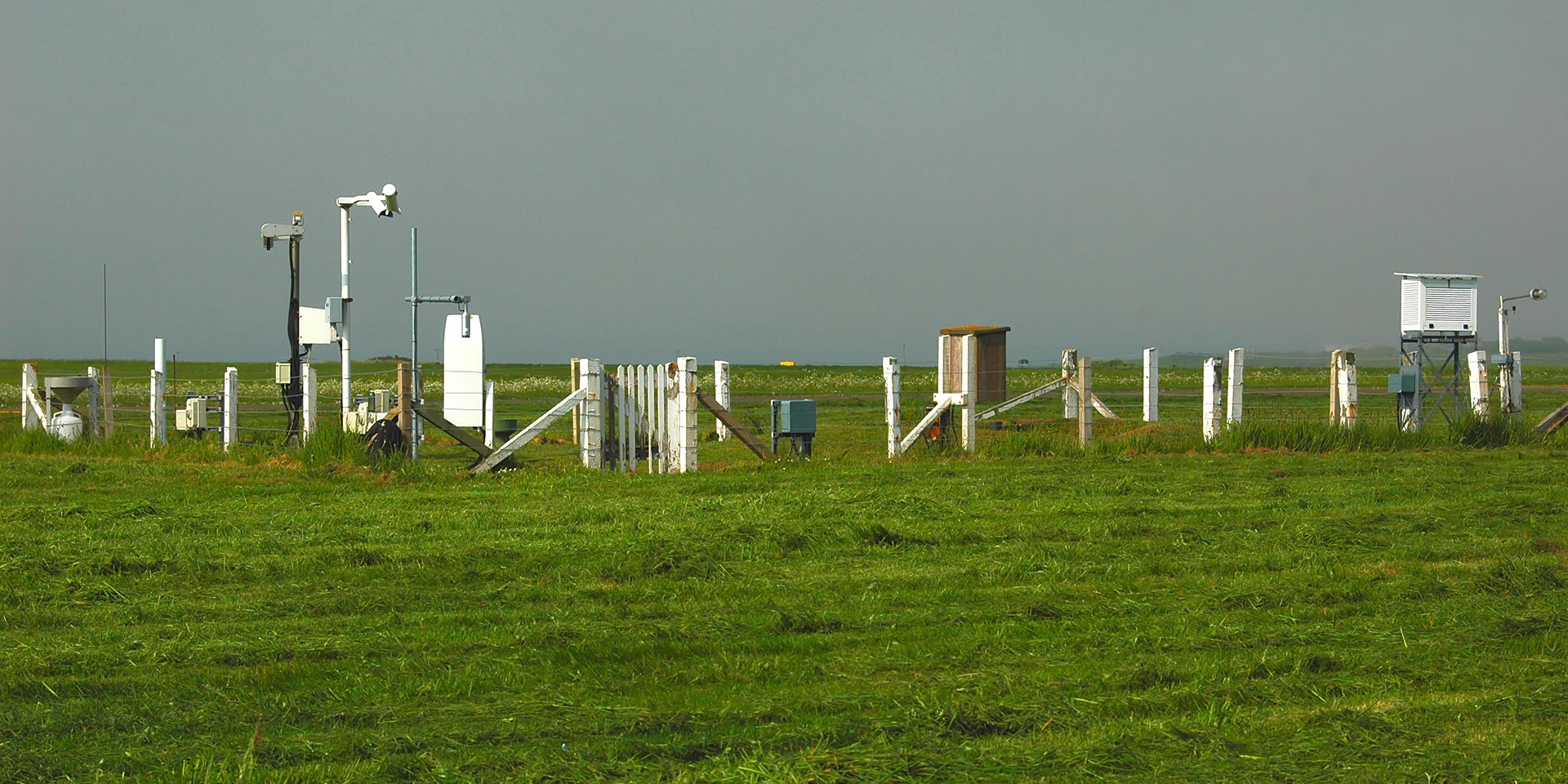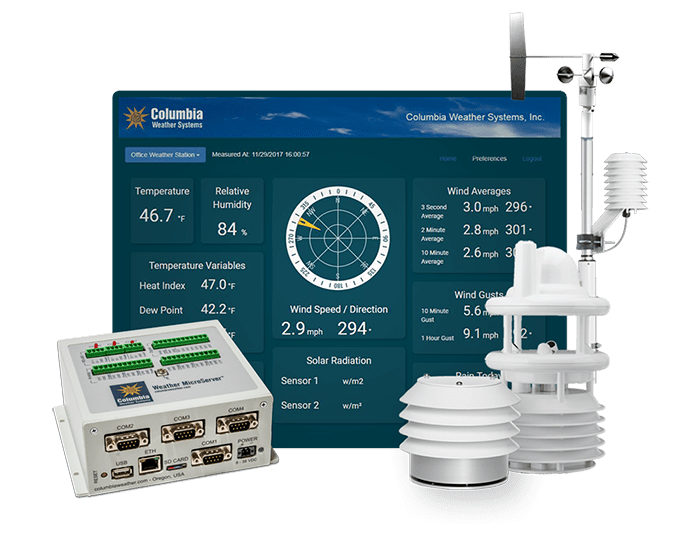Why Purchasing High-Quality Weather Stations Can Improve Your Daily Planning
Why Purchasing High-Quality Weather Stations Can Improve Your Daily Planning
Blog Article
Maximizing the Advantages of an Expert Climate Terminal for Accuracy Forecasting and Analysis
In the realm of meteorology, the usage of specialist climate stations plays a vital role in acquiring trusted and exact information for forecasting and analysis. From making certain the precision of climate data to boosting forecasting versions and employing innovative information evaluation strategies, expert weather terminals offer a wide range of opportunities for decision-making processes and different sectors.
Significance of Accurate Weather Information
Accurate weather condition data plays a critical role in various industries, giving crucial details for decision-making and risk administration. In the energy field, weather data aids predict power intake patterns, enhance manufacturing, and manage possible threats such as tornados or extreme temperature levels.
Building jobs are extremely depending on climate condition, with exact data enabling far better scheduling of tasks and source allotment. Furthermore, accurate climate info is crucial for catastrophe readiness and emergency response planning. By having accessibility to trustworthy climate information, organizations can reduce risks, lower operational interruptions, and improve total efficiency. Investing in expert weather stations to collect prompt and exact information is necessary for industries seeking to boost their decision-making procedures and make certain ideal performance.

Improved Projecting Capabilities
With developments in innovation and data analysis, weather condition terminals are currently equipped to provide even more accurate and in-depth forecasting capabilities. These enhanced projecting capacities stem from the capability of specialist weather terminals to gather real-time information on various atmospheric parameters such as temperature level, moisture, wind speed, and rainfall. By constantly monitoring these factors, climate stations can produce highly accurate short-term and long-term forecasts.
One substantial advantage of specialist climate stations is their ability to spot refined adjustments in weather that may suggest forthcoming climate patterns - Weather Stations. This capacity enables meteorologists and scientists to provide prompt warnings for extreme climate occasions like thunderstorms, blizzards, or typhoons, helping areas prepare and mitigate possible problems
Furthermore, professional climate stations frequently integrate innovative algorithms and versions to analyze historic data fads and forecast future weather condition patterns with higher precision. These projecting tools enable customers to make informed decisions based upon reliable climate predictions, whether it's for farming preparation, outdoor occasion management, or basic day-to-day activities.

Essentially, the enhanced forecasting abilities of expert climate stations equip customers with valuable insights right into upcoming weather condition problems, cultivating better preparation and decision-making in various markets. (Weather Stations)
Utilizing Advanced Information Evaluation

One trick advantage of using sophisticated data analysis in professional climate terminals is the capability to improve the precision of temporary and long-lasting weather prediction. By assessing historic weather condition data alongside real-time monitorings, weather condition stations can develop more exact forecasting models that take into consideration numerous atmospheric aspects and variables. This enhanced degree of analysis enables meteorologists and scientists to much better comprehend weather patterns, predict extreme climate events, and give more detailed projections to the public.
Applications Across Different Industries
The integration of expert weather condition station data discovers extensive applications across varied markets, impacting operations and decision-making procedures. In farming, farmers utilize weather condition station data to enhance watering timetables, monitor plant health and wellness, and predict yield results. The information help in identifying the excellent planting times, lowering water wastage, and alleviating weather-related threats.
The transport industry gain from weather terminal information by boosting route planning, managing logistics, and improving safety steps. Airlines rely upon precise weather report to lessen trip hold-ups, stay clear of disturbance, and make certain passenger comfort. Likewise, maritime operations utilize this data to navigate safely, avoid tornados, and enhance fuel usage.
Building business leverage weather terminal information to intend exterior tasks effectively, avoid weather-related accidents, and reduce project hold-ups. By keeping track of wind speeds, temperature level variations, and rainfall degrees, building contractors can maximize work schedules and ensure YOURURL.com worker safety and security. On the whole, the varied applications of professional climate terminal data underscore its significance in boosting operational performance and notified decision-making across various sectors.
Improving Decision-Making Processes
Boosted access to precise and real-time weather condition information considerably enhances the precision of decision-making procedures across industries. By making use of a professional weather terminal, organizations can make educated decisions based on current and forecasted climate condition. This data is specifically vital for industries such as farming, building, transport, and emergency administration, where weather plays a substantial role in operations and security.
In farming, accessibility to specific climate information permits farmers to enhance irrigation schedules, plan planting and collecting tasks, and mitigate dangers connected with extreme weather condition occasions. Building and construction business can better plan exterior projects, routine job efficiently, and make sure the security of their workers by keeping an eye on weather condition problems in real-time.
Moreover, transport firms can improve route planning, change routines based on weather condition forecasts, and enhance general functional effectiveness. In emergency administration, accurate weather data enables proactive decision-making, prompt feedbacks to find more info all-natural catastrophes, and reliable interaction with the public to ensure their safety and security. On the whole, the assimilation of a specialist climate terminal into decision-making procedures encourages markets to make calculated and educated selections, eventually resulting in enhanced results.
Conclusion
To conclude, using a professional climate terminal uses considerable advantages for precision projecting and analysis. By providing exact climate data, boosting forecasting capacities, and allowing advanced information analysis, it can boost decision-making processes throughout various sectors. This tool is important for optimizing the potential of climate data and making certain even more reliable and educated procedures.
From guaranteeing the accuracy of weather condition information to improving projecting models internet and employing advanced information analysis methods, specialist weather terminals provide a wealth of possibilities for various markets and decision-making procedures. With the application of machine discovering algorithms, clustering techniques, and predictive modeling, weather terminals can improve their forecasting capabilities and supply even more exact and timely climate forecasts.
One key benefit of making use of advanced data analysis in expert climate terminals is the capacity to improve the precision of temporary and long-term weather condition projections. By analyzing historical weather data alongside real-time monitorings, climate terminals can create more precise projecting versions that take into account various meteorological factors and variables. By using an expert weather condition station, organizations can make informed decisions based on current and forecasted weather problems.
Report this page